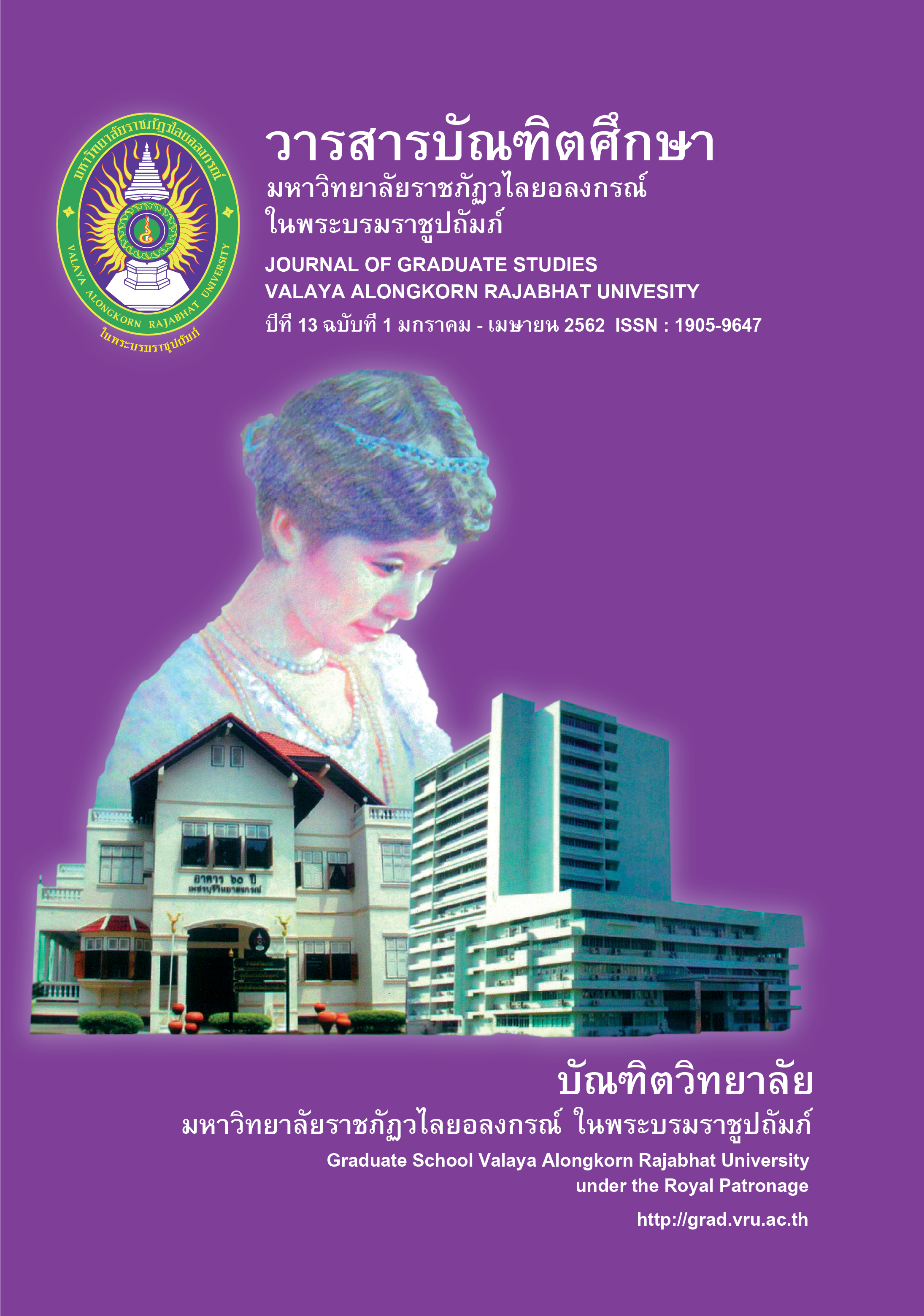DIGITAL LEARNING: LEARNING ENGLISH IN THE DIGITAL WORLD OF THE 21ST CENTURY
Main Article Content
Abstract
Nowadays, digital media technology is important in teaching English and plays a very important role in education, research for information and communication all around the world. The technology can make students more excited and pays more attention to their English studies. The more popular digital media technology used for learning English include blogs, Twitter, web application and YouTube. These can all help the students to develop their English and increase their proficiency which they can then use for studying and researching information by themselves, providing them with lifelong learning skills to completely and effectively live in the 21st century.
Article Details
บทความทุกเรื่องได้รับการตรวจความถูกต้องทางวิชาการโดยผู้ทรงคุณวุฒิ ทรรศนะและข้อคิดเห็นในบทความวารสารบัณฑิตศึกษา มหาวิทยาลัยราชภัฏวไลยอลงกรณ์ ในพระบรมราชูปถัมภ์ มิใช่เป็นทรรศนะและความคิดของผู้จัดทำจึงมิใช่ความรับผิดชอบของบัณฑิตวิทยาลัย มหาวิทยาลัยราชภัฏวไลยอลงกรณ์ ในพระบรมราชูปถัมภ์ กองบรรณาธิการไม่สงวนสิทธิ์การคัดลอก แต่ให้อ้างอิงแหล่งที่มา
References
Alvarado et al. (2016). Mobile apps for ELLs: Supporting language learning with engaging digital tools. Argentinian Journal of Applied Linguistics. 4(1), 43-58.
Amornrit, P. (2018). kānsāng sư̄ botrīan pati samphan dūai Edpuzzle [Creating interactive media lessons with Edpuzzle]. In theknōlōyī thī chai nai kānsāng khwāmrū læ sāngsan sư̄ botrīan pati samphan kratun kān rīanrū [Technology used to create knowledge and create media lessons to stimulate learning interaction]. (pp.1-21). Nonthaburi: Sukhothai Thammathirat Open University.
Boonbandol, Y. & Soontornwipat, S. (2017). kān widīʻō phāsā ʻAngkrit čhāk yūthūpa phatthanā thaksa kān phūt khō̜ng nakrīan ʻāchīwasưksā witthayālai ʻāchīwasưksā singha burī [Using english videos on youtube to develop vocational students’ speaking skills at singburi vocational college]. Liberal Arts Review. 12(23), 1-9.
Harmandaoglu, E. (2012). The use of twitter in language learning and teaching. International Conference “ICT for Language Learning, Institute of Educational Sciences, Gazi University (Turkey).
Jansem et al. (2016). thaksa nai satawat thī yīsipʻet kap kānčhatkān sưksā phāsā tāngprathēt : čhāk nayōbāi thưng phū sō̜n [The 21st century skills and foreign language education: from policies to teachers]. Journal of Library and Information Science SWU. 9(2), 114-123.
Kaewphanngam, C. (2016). theknōlōyī phư̄a kānpramœ̄n kān rīanrū phāsā samrap phū rīan nai satawat thī yīsipʻet [Technology-assisted language assessmentfor 21st century learners]. Veridian E-Journal, Silpakorn University. 9(3), 436-452.
Özer, Y. E. & Koçoğlu, Z. (2017). The use of quizlet flashcard software and its effects on vocabulary learning. Dil Dergisi. 168(1), 61-81.
Pangthai, S. (2016). botbāt khō̜ng phūbō̜rihān sathān sưksā nai satawat thī yīsipʻet [Roles of school administrators in education 4.0]. College of Asian Scholars Journal. 6(1), 7-11.
Phỉ, et al., (2015). Application of quizzlet.com to teaching and learning business english vocabulary at the university of economics ho chi minh city. University of Economics Ho Chi Minh City. 230-238.
Puarungroj, W., Pongpatrakant, P. & Phromkhot, S. (2017). nǣonōm withīkān rīan kānsō̜n yuk mai dūai khrư̄angmư̄ pramœ̄nphon rawāng rīan ʻō̜nlai [Trends in modern teaching and learning methods using online formative assessment tools]. Journal of Learning Innovations Walailak University. 3(2), 45-68.
Thanathiti, T. & Soranastaporn, S. (2008). Blog : ʻōkāt læ khwām thāthāi nai kānphatthanā thaksa phāsā ʻAngkrit khō̜ng phū rīan Thai nai yuk dičhitō̜n [Blog : Opportunities and challenges in developing english skills of Thai students in the digital age]. Asaihl-Thailand Journal. 11(1), 116-136.
Walker, A., & White, G. (2013). Technology enhanced language learning: connecting theory and practice. Oxford: Oxford University Press.

